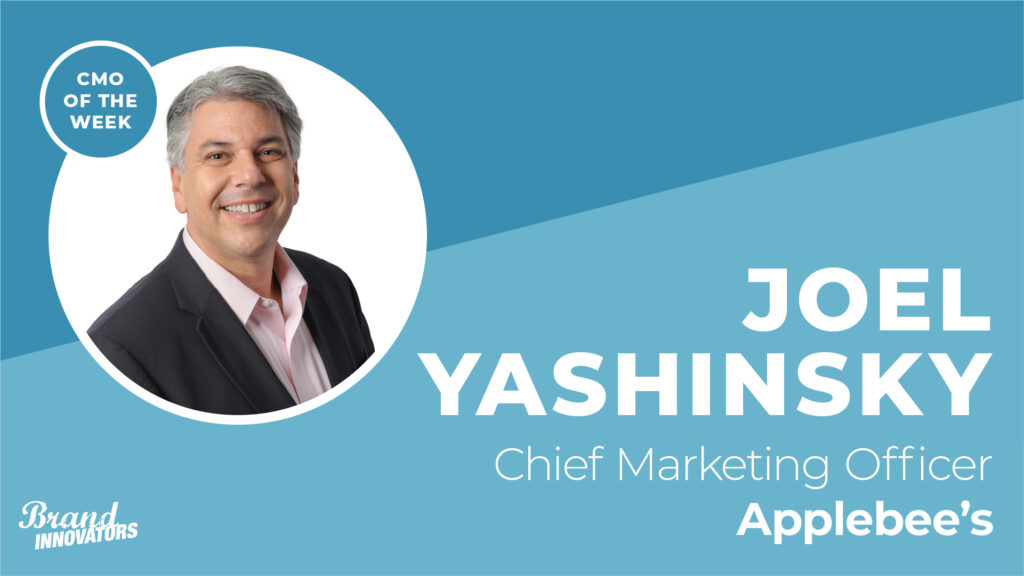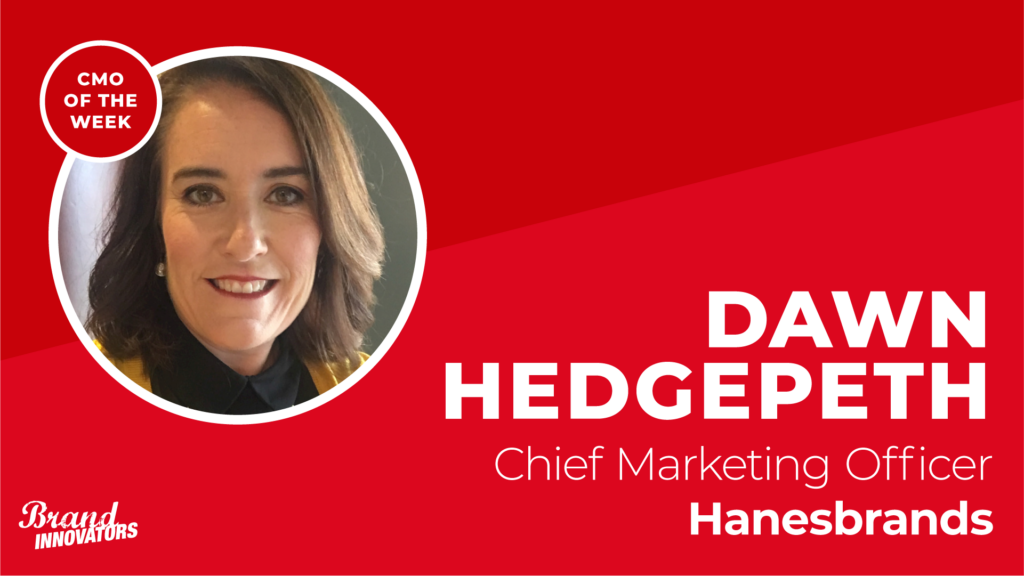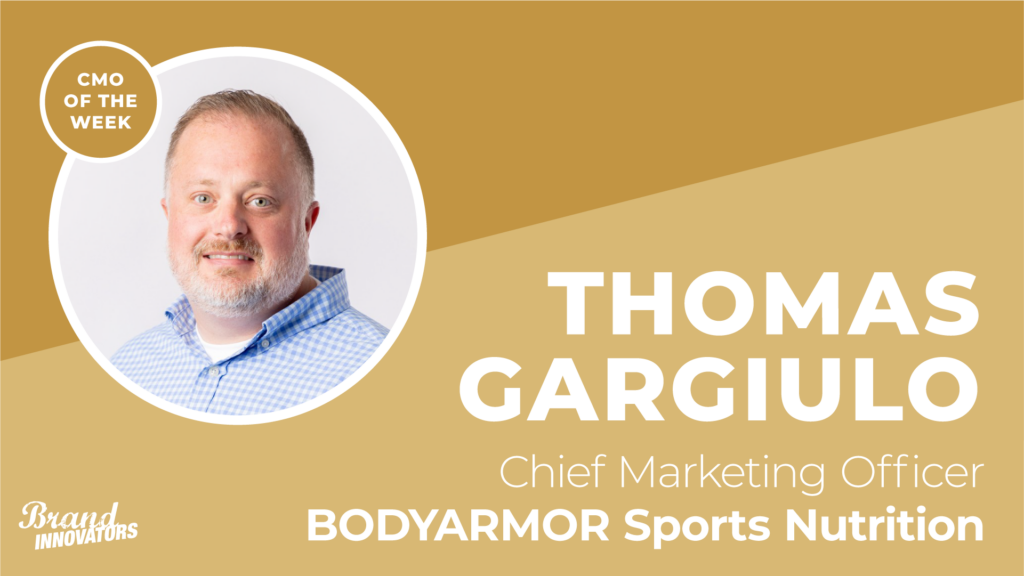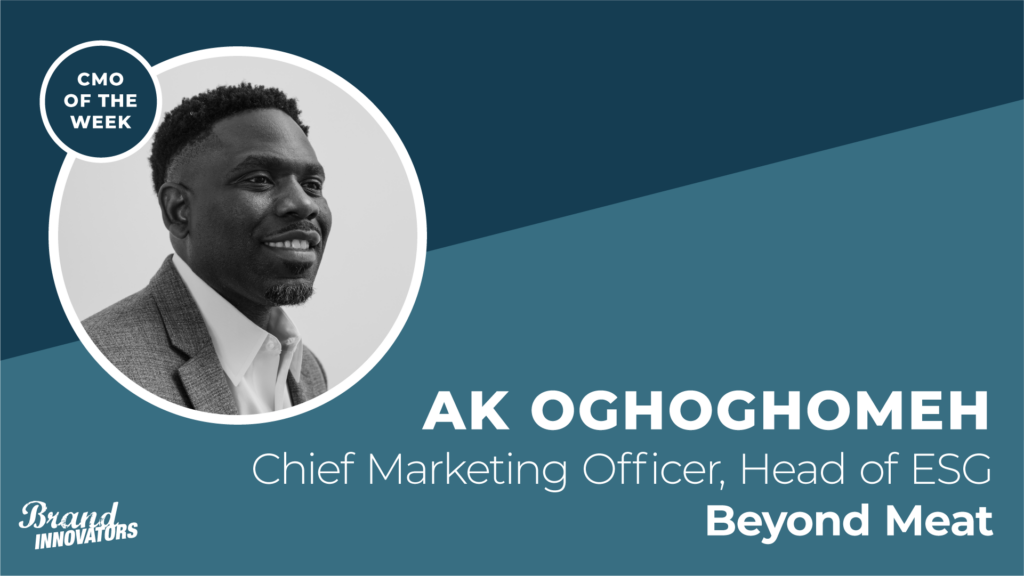Much of the advertising seen during the first wave of the COVID-19 pandemic in spring 2020 featured such a familiar refrain of “We’re all one” messaging with the same sad-piano score that the commercials quickly became the stuff of YouTube memes.
One marketer who knew to avoid those cliches was Patricia Corsi, global chief marketing & digital officer at Bayer Consumer Health, who opted to spend the first months of the pandemic providing her global team with the best resources needed to adjust to the suddenly virtual world instead of a monolithic brand message.
“We really avoided going into this macro thing, saying ‘We are all in this together,’ because this was not the reality that we were seeing,” Corsi recalls of her strategy at the time. “If you’re looking at this as individuals, then we were really not in it all together. Everyone was living in such a unique, individual way — if you have kids or if you don’t have kids, if you have a partner or you don’t have a partner, or if you’re working in an office or you’re working from home. We were seeing something very different, including in our teams. So we started looking at this through the eyes of a lot of empathy.”
Nearly two years later into the pandemic era, Corsi continues to prioritize mental health for her teammates and letting that lead the way for her brand messaging. Corsi’s marketing colleagues have free access to FitBits and on-demand meditation libraries to help them adjust to a workplace that’s still largely remote and full of the everyday stressors that come with that. “For me, the callout for the CMOs and CDOs is to first think about the people around them — it should not be a marketing campaign first. This should be a values and purpose proposition first, and then if there’s anything where your brand is really good at it, use your brand principles and platforms to bring that to life.”
Corsi’s efforts to amplify Bayer’s Consumer Health brand portfolio’s values have included several programs designed to bust taboos and bring important health conversations to the forefront that are often rarely discussed by name. One such example is “Vagina Academy,” a digital education program that the Switzerland-based Corsi introduced in her home country of Brazil to host open conversations about female intimate health. The program utilizes channels like TikTok and Instagram to meet consumers where they are and deliver more than 17,000 virtual classes on health education to a target audience of women aged 15 to 45.
“I’m super proud of this because this is something the government usually does,” Corsi says. “The best thing about it was this was a project in Brazil that went out with buses and favelas and reached the people who needed it from an education standpoint. And now it’s going across the globe.”
The program is expanding at a time of strong growth for Bayer’s Consumer Health portfolio, which saw a 7.4% year-over-year increase in sales during Bayer’s Q2 2021 earnings — including a 13.2% increase in Latin America during the time period, where dermatology products like Bepanthen introduced new extensions. In North America, the company is seeing high demand for its nutritional products as well as new topical pain relief extensions of its Aleve brand.
Brand Innovators caught up with Corsi from her office in Basel, Switzerland to learn more about her pandemic-era marketing playbook, the dual focus of her unique role as both CMO & CDO and the importance of nuance in marketing to diverse audiences. The conversation has been edited for length and clarity.
Brand Innovators: You have a unique hybrid role at Bayer as both Chief Marketing and Chief Digital Officer. How do you combine the two roles in your work?
Patricia Corsi: I think it’s a wonderful blend of the two things because I love brands and I love transformation. And this is the part where we feel that we are building a really great culture and taking risks on testing and learning. This is the part where we really needed to drive change from where we were. From our team, we lead an additional transformation across all the functions of our division, from the digital information and product supply to marketing — it’s all moving together.
And we have moved significantly in some really important ways. If you think about marketing, it’s not just the percentage of what’s digital vs traditional, or how much of the digital is precision and programmatic. The important piece is content and finding the best platform for it. That’s why I wanted to highlight the importance of having done a really strong grassroots job to define our strategic partners. We are not fishing around to find the newest trend, we have partners who understand our needs — we eat together, we fight together, we celebrate together.
Would you say you’re a digital-first marketer, or an omnichannel marketer who excels at digital extensions?
I approach it in the third way, which is media agnostic. I always look at the idea independent of the media. I think the age of looking at it through the lens of 30-second TV ads of course is outdated. In some countries we know this is not how consumers are consuming content. But also if you do things only from a digital point of view, you are missing a lot of other touchpoints within the consumer shopper journey.
And this is the point for me where I don’t think it’s 100% traditional or 100% digital. I love being media agnostic, because there are some ideas that would be wonderful in cinema, or out-of-home. We are a global business, and we have a lot of out-of-home media that is already digitized, but there are other places in the world where we don’t.
What are some examples of how diversity, equity & inclusion has been highlighted in your marketing?
We joined the Unstereotype Alliance about one year ago, and we are very clear about our ambition to first be very humble and recognize what we are doing wrong. The first step was to audit everything we do, which wasn’t to point fingers, just to open our eyes to unconscious bias and things that we were not paying attention to. And the ultimate goal is to make sure we are representing the people that we serve. That’s it, no judgment. The marketing and digital team is the most diverse team within our organization, which I’m extremely proud of, and from different angles, not just gender.
And after the audit we identified there were a couple things we were doing really well, and a couple that we were not doing that well. For example, for over 70 years we’ve been a really big force from Germany outwards for people with disabilities. We’ve been sponsoring Olympic athletes for decades on this. Bayer is a very humble company, and doesn’t like to talk about itself, so this was news to a lot of people even within Bayer. We didn’t feel we were doing a good service if we’re not serving those people in our communications.
We started doing this with a nutritional brand called Elevit for pregnancy, and the first work we had for Pride Month was talking about same sex parenting and it was really the first time ever for us. A couple months later, we launched a campaign in Brazil that represents the people from my home country and our beautiful diversity — from the way we look but also in terms of physical ability, or sexual preference. This is one of the works where I’m most proud this year. Having said that, I think we’re still learning a lot, I think we need to always be super humble about it.
One great example of this is your Vagina Academy program. Why was that program important to you, and what have you learned from it so far?
One of the first challenges we had was how can we uncensor the word “vagina”? These are the things that you don’t really mention, but with platforms like Instagram and TikTok you can have these discussions, and we have led the way on that. I remember the first thing someone from my team said, “If my mother heard me she would fill my mouth with soap so many times every time I said the word ‘vagina.’” These are the things we have to get over if you want to be relevant and move quickly.
When I did Vagina Academy in the first month in Brazil, we got a question from someone in the transgender community — “Why is this not talking to me?” And I have to say I didn’t know what to answer, which is where our unconscious bias came into play. We realized we were excluding people that are transitioning, so we have to learn — even when we don’t know how to provide the right education.
I saw some work by a brand of women pads that made male boxers with women pads hidden inside and I thought, “That was amazing.” You don’t need the science for that, you just need the great idea and with open eyes having someone to say, “What is happening with people when they transition from female to male but are still menstruating?” This was a great inspiration for us, we are very humbled to say we are on a journey, which means that we are very keen to learn.
What long-term impact do you see the pandemic having on consumer behavior, particularly as it relates to their health?
COVID will forever change the way people see their health. When people ask what are the most important things in your life, you will say your family and your health. When I think about how much time I was investing on my health being proactive vs. reactive, there was a shift in my priorities.
And remember at the beginning there was a lot of conversation, which completely shifted the way people see their relationship with health. They will be most open to consumer education content, understand how do they keep themselves mentally and physically better. Before in many countries, culturally this would be something regular people don’t do. Now it feels like it averages out everyone. This is something that I think it’s going to be very different.
And internally, it’s about the importance of putting in time for the mental and emotional health of the people around us. I think in COVID, this is one of those moments where it’s an opportunity to break the taboos and support people that are struggling in these areas — depression, burnout, some of those things that people are ashamed to talk about. This is the moment for all of us to unite and help to demystify this, take out the taboos and clarify and educate how people can get help.
The levels of suicide for men and for younger people are too high, and honestly, if we’re talking about innovation one thing we need to innovate is how we take care of the people who will be driving the future for us. As a mother, I find it unacceptable that we don’t do something. We used to see these topics as taboos, so let’s use this as an opportunity to open our minds to break taboos, break stereotypes and take our bias away.
Andrew Hampp is an entertainment marketing consultant for Brand Innovators and the founder of consultancy 1803 LLC, based in Berkeley, California.




